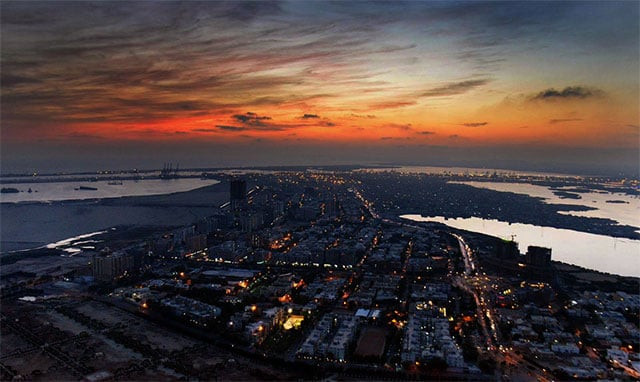Missed economic targets
In three years, the report adds, the PML-N government has only achieved four out of 89 targets it set itself

In three years, the report adds, the PML-N government has only achieved four out of 89 targets it set itself. PHOTO: INP
If one took political point-scoring out of the equation, it can also be said that the opposition has not dissected this matter seriously either. It has quickly jumped from one topic to another, failing to hold the PML-N to account for its economic measures with meaningful criticisms and constructive debates. As a result, the PML-N has got away with its less-than-satisfactory negotiations with traders, proposing tax amnesty schemes when protests over taxation have become loud and it has stalled the privatisation of literally every organisation that needed restructuring. Whatever stakes it has managed to sell have been those of profit-making entities, reinforcing the view that money generated from these sales has only been used to finance the budget.
Nevertheless, certain economic indicators have improved in the last three years. The PML-N took over when Pakistan was still reeling on the economic front and was left with just enough foreign exchange reserves to finance three months of import. Today, reserves have risen to a record level, but a large part of the increase has come on the back of the IMF’s bailout programme and huge amounts of debt. Aided by the fall in oil prices, Pakistan has managed to shrink its trade deficit, but a continuous fall in exports has halted progress. Remittances continue to be the salvaging grace, but impetus to production has been missing. Pakistan continues to bank on traditional sectors to foment growth and bailout packages keep getting announced for the agriculture and textile sectors.
These measures and packages are part of a larger plan to keep the PML-N’s vote bank secure. But do these help the economy in the long-term? Misplaced priorities have already resulted in most state-owned entities being dependent on taxpayers’ money with the taxpayers themselves being burdened each year by higher tax rates and indirect taxation. Even falling oil prices have failed to give relief to the public due to unprecedented levels of GST rates on petroleum products. This has enabled the PML-N to cut down on its subsidies and adopt a tight-fisted approach when it comes to doling out cash for the power sector. However, circular debt keeps on increasing that would only be parked in the last year of the government’s five-year tenure. The $46-billion CPEC may very well be the best piece of news during the PML-N’s five-year tenure, but real progress is still a long way away. Security concerns are being tackled — although it took the tragic APS attack to breathe life into anti-terror efforts — and foreign investors are slightly calmer. But the reality is that hard measures and tough decisions, aimed at reforming the economy, are missing. The privatisation of the power sector has been stalled and meaningful reforms are missing. No private entity would want stakes in inefficient state-owned companies anyway. Billions were spent in pursuing a privatisation strategy that was ultimately shelved. The PML-N has not taken pressure situations too well and it is quite evident that it does not want to sacrifice its precious vote bank at the expense of real economic progress. Years of impressive stock exchange performance have taken Pakistan back to the emerging markets index, which will take effect from next year, but the on-ground reality of our economy tells a different story. Slow progress in important areas means Pakistan is set to miss a golden opportunity to catch the development bus. There isn’t much time left.
Published in The Express Tribune, July 28th, 2016.
Like Opinion & Editorial on Facebook, follow @ETOpEd on Twitter to receive all updates on all our daily pieces.















COMMENTS
Comments are moderated and generally will be posted if they are on-topic and not abusive.
For more information, please see our Comments FAQ